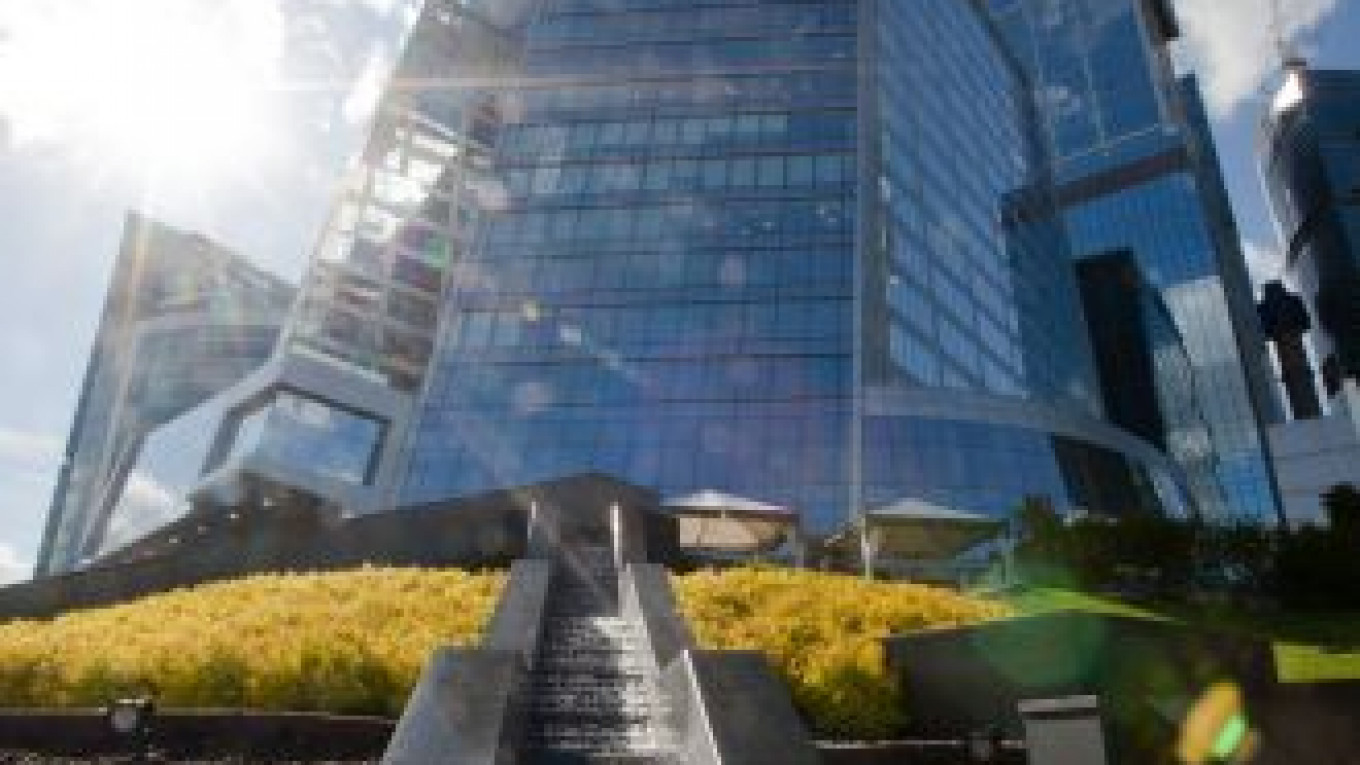State and private sector finance executives are divided on how to realize President Dmitry Medvedev's ambition to transform Moscow into a leading international financial center.
While some participants at the Association of European Businesses' annual investors conference Tuesday argued that the drive would stand or fall on the successful implementation of the finer points of financial legislation, others said the key was to create an environment in which business felt comfortable.
Natasha Sidorova, head of securities services at ING Commercial Banking in Russia, said she was "very pessimistic" about the initiative of Moscow as an international financial center, or MIFC. Unfortunately, certain regulatory officials from time to time resemble children with toys, she said. They "cherry-pick" issues that interest them, play with them for a while and then drop them.
The lack of a central depositary for securities in Russia, for example, is widely acknowledged to be a significant obstacle for major financial players — Sidorova said she has been involved with negotiations on this issue for 10 years and little had been achieved.
In contrast, other experts said the crux of the problem was one of international perception and the contours of the broader investment climate. One source close to a working group advising Medvedev on the implementation of MIFC said it was the existence of a "general good feeling" that would determine the success of the project. Alterations to financial technicalities were not crucial, he added.
Ilya Lomakhin-Rumyantsev, a member of the presidential council for financial market development, even said the group had been discussing changes to the long New Year's holiday that causes, "serious losses" for the country.
But there was agreement on the fact that there needed to be clarity on who MIFC was being created for — an international audience, a domestic one or for a specific market sector.
Russian companies notoriously prefer to conduct initial public offerings in London, New York or Hong Kong rather than Moscow, and capital outflow in the first four months of 2011 amounted to $30 billion. Chris Weafer, chief strategist at UralSib, said investors are asking, "Why should I come to Russia if Russians are coming out?"
Though MIFC did not get off to a propitious start when Medvedev announced it in June 2008 just before the financial crisis took hold, strong support has been repeatedly voiced for the initiative at the highest level of government. "The creation of a financial center remains an unconditional priority for the development of our state," Medvedev said in March.
Robert Maciejko, a partner at consulting company Oliver Wyman and a member of a MIFC working group advising Medvedev, said there was a significant gap between perception and reality when it came to the attitudes toward Moscow's financial ambitions.
He added that this disparity played a role in the fact that while Russia was the 6th biggest world economy by purchasing power, a recent report by London-based think tank Z/Yen placed Moscow 68th on its Global Financial Centers Index.
Sergei Sinkevich, vice president of the MICEX stock exchange — which is looking to become one of the world's top five exchanges by 2015 — said that while MIFC was all about money and comfort, how people understood Russia was also important. "Perception is reality," he said.
A Message from The Moscow Times:
Dear readers,
We are facing unprecedented challenges. Russia's Prosecutor General's Office has designated The Moscow Times as an "undesirable" organization, criminalizing our work and putting our staff at risk of prosecution. This follows our earlier unjust labeling as a "foreign agent."
These actions are direct attempts to silence independent journalism in Russia. The authorities claim our work "discredits the decisions of the Russian leadership." We see things differently: we strive to provide accurate, unbiased reporting on Russia.
We, the journalists of The Moscow Times, refuse to be silenced. But to continue our work, we need your help.
Your support, no matter how small, makes a world of difference. If you can, please support us monthly starting from just $2. It's quick to set up, and every contribution makes a significant impact.
By supporting The Moscow Times, you're defending open, independent journalism in the face of repression. Thank you for standing with us.
Remind me later.







